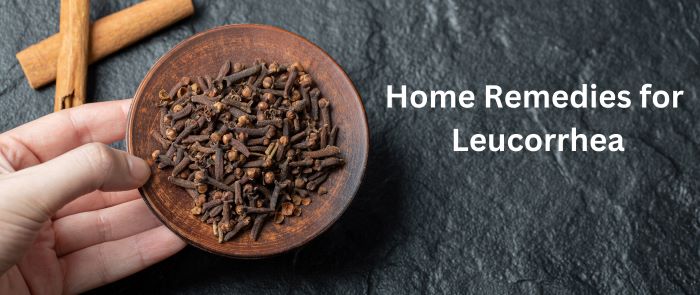Leucorrhea FAQs: Everything You Need to Know – Leucorrhea, commonly known as white vaginal discharge, is a topic that many women are curious about. It’s a natural occurrence in the female body, but it can raise concerns when it becomes abnormal or excessive. In this guide, we aim to address your most pressing questions about leucorrhea, providing you with essential information on its causes, symptoms, and when it’s necessary to consult a healthcare professional. Understanding leucorrhea better can empower you to take charge of your vaginal health.
Table of Contents
What Is Leucorrhea?
Leucorrhea, often known as vaginal discharge, is a frequent condition when a woman’s vagina leaks a white or yellowish fluid. It is an organic component of the body’s natural cleansing mechanism. The texture and volume of this discharge might change, and it typically gets worse at periods like pregnancy, ovulation, or sexual excitement.
Infections, inflammation, or changes in hormone levels can all result in leucorrhea. Even though it’s mostly safe, it’s essential to speak with a doctor if it starts to look or smell strange, changes color, or if it gets painful or itchy. Leucorrhea can be controlled by practicing proper hygiene and wearing breathable underwear.
What is the difference between leucorrhea and normal vaginal discharge?
Normal vaginal discharge and leucorrhea have some similarities but also some important differences.
A healthy and common component of the female reproductive system is normal vaginal discharge. It often has a clear or white color, a slight odor, and its texture and quantity can change throughout the menstrual cycle. This discharge aids in lubricating and cleaning the vagina.
On the other side, excessive or abnormal vaginal discharge is known as leucorrhea. It could have a thicker consistency, an odd color, and be itchy, uncomfortable, or smell bad. If abnormal, it may necessitate medical care since it could be an indication of infections or hormonal abnormalities.
Is Leucorrhea Normal?
“Leucorrhea, or increased vaginal discharge, can be normal under certain circumstances. It’s considered normal when it occurs as a part of the body’s natural processes, such as during ovulation, pregnancy, or sexual arousal. However, if leucorrhea is accompanied by symptoms like a foul odor, unusual color, itching, irritation, or pain, it may indicate an underlying issue like an infection or hormonal imbalance. In such cases, it’s essential to consult a healthcare provider to determine the cause and receive appropriate treatment if necessary. For more information on leucorrhea and answers to common questions, you can also explore our comprehensive resource titled ‘Leucorrhea FAQs: All Common Questions Answered.'”

When Is Leucorrhea Considered Abnormal?
Leucorrhea is considered abnormal when it deviates from the typical characteristics of normal vaginal discharge. This includes:
1. Foul odor:
The presence of a foul odor in leucorrhea, the vaginal discharge, typically indicates an underlying issue. This unpleasant smell is often linked to infections like bacterial vaginosis or certain sexually transmitted infections. Seeking medical advice promptly is essential when noticing such an odor, as these conditions may require treatment to alleviate symptoms and prevent complications.
2. Unusual color:
Vaginal discharge that is an odd color, such as green, yellow, gray, or crimson, indicates an abnormal condition. It has to be evaluated by a healthcare professional for correct diagnosis and treatment because it could be an indication of infection, inflammation, or other underlying problems.
3. Changes in texture:
Concern should be expressed if vaginal discharge changes in texture, such as when it becomes excessively thick, clumpy, or foamy. These deviations should be evaluated by a healthcare professional for proper examination and management because they could indicate an underlying issue, such as an infection or hormone imbalance.
4. Itching or irritation:
Increased discharge and itching or irritation in the vaginal area could be symptoms of an unhealthy condition. It may be a sign of a yeast infection, an allergic reaction, or another problem, demanding a medical professional’s advice for an accurate diagnosis and course of treatment.
5. Pain or discomfort:
A worrying indication is having pain or discomfort accompanied with an increase in vaginal discharge. It may be a sign of a number of conditions, such as infections, inflammation, or pelvic difficulties. To determine the underlying reason and receive the proper therapy, it is essential to seek immediate medical attention from a healthcare provider.
What Are the Common Causes of Abnormal Leucorrhea?
Abnormal leucorrhea is often a sign of an underlying issue such as:
1. Infections in Leucorrhea :
Atypical vaginal discharge can be caused by illnesses including bacterial vaginosis, yeast infections, or sexually transmitted infections. Changes in color, texture, odor, itching, inflammation, and discomfort are possible symptoms. If you think you might have an infection, you should see a doctor right away for a proper diagnosis and course of action to protect your health and stop any potential problems.
2. Hormonal changes in Leucorrhea:
Hormonal changes can also influence vaginal discharge. For example, during ovulation or pregnancy, hormonal shifts can lead to an increase in discharge, which is typically considered normal. However, if these changes become excessive or are accompanied by other abnormal symptoms, it’s advisable to consult a healthcare provider to rule out any underlying issues.
3. Allergies or irritants in Leucorrhea:
Allergies or exposure to irritants in the vaginal area can cause abnormal vaginal discharge. Contact with certain soaps, perfumes, douches, or latex can lead to irritation and changes in discharge consistency. If you suspect allergies or irritants are the cause, avoiding the triggering substances and seeking medical advice for relief may be necessary.
4. Cervical issues:
Vaginal discharge might also be impacted by cervical problems. Changes in the quantity, color, or odor of the discharge can be caused by diseases such cervical polyps, inflammation, or cervical cancer. A healthcare professional should examine any atypical discharge that is accompanied by pelvic pain or bleeding in order to rule out cervical problems and guarantee proper diagnosis and treatment.
How Can You Manage Leucorrhea?
Managing leucorrhea typically involves good hygiene practices and addressing any underlying issues:
1. Practice good hygiene:
A. Cleanliness:
To ensure optimal hygiene in the management of leukorrhea, it’s essential to adhere to a meticulous routine. Begin by gently washing the external genital area using a mild, unscented soap and warm water. The use of harsh or scented products should be avoided, as these can upset the delicate balance of the vaginal environment, potentially leading to irritation and exacerbation of symptoms. Prioritizing this cleansing practice not only promotes physical comfort but also supports the preservation of a healthy vaginal ecosystem, contributing to overall well-being.
B. Wiping:
Maintaining proper hygiene, especially when dealing with leukorrhea, includes the vital practice of always wiping from front to back after using the toilet. This preventive measure stops the migration of bacteria from the rectal area to the vaginal region. Because the anus and vagina are distinct anatomical zones, bacteria from the anus can be potentially harmful when introduced into the vagina, heightening the risk of infection or irritation. Consistently adhering to this front-to-back wiping technique is particularly crucial for women due to the proximity of the anus to the vagina. Integrating this habit into daily routines proactively supports overall well-being and the effective management of leukorrhea.
C. Cotton underwear:
Opt for breathable cotton underwear to enhance comfort and maintain better vaginal health. Cotton permits air circulation and wicks away moisture, reducing the risk of fungal overgrowth and irritation. This choice in undergarments helps in the prevention of discomfort and supports overall hygiene, especially for individuals managing leucorrhea.
D. Avoid douching:
Douching is often discouraged as it can disrupt the natural pH balance of the vagina. The vagina is self-cleaning and maintaining its pH is crucial for preventing infections. Douching can wash away beneficial bacteria and make the environment more susceptible to harmful microorganisms. To maintain a healthy vaginal ecosystem, it’s generally best to avoid douching and rely on the body’s self-regulating mechanisms for cleanliness.
E. Safe sex During Leucorrhea:
Engaging in safe sex practices is crucial when managing leucorrhea. To reduce the risk of infections and ensure optimal vaginal health, always use protection during sexual activity. Condoms act as a barrier, preventing the transmission of sexually transmitted infections (STIs) and minimizing the likelihood of exacerbating leucorrhea-related symptoms. Prioritizing safe sex not only safeguards one’s well-being but also supports effective leucorrhea management.
2. Home remedies for leucorrhea:
Home remedies can help alleviate leucorrhea symptoms. Drinking cranberry juice, consuming amla (Indian gooseberry), and maintaining proper hygiene are beneficial. Additionally, fenugreek seeds and guava leaves have astringent properties that can assist in managing the condition. However, consult a healthcare professional for persistent or severe cases.
A. Take a warm bath or shower.
Taking a warm bath or shower can provide relief for leucorrhea symptoms. The warm water can help soothe discomfort and promote overall cleanliness and comfort. This practice, when combined with other hygiene measures, can be beneficial in managing the condition.
B. Apply a cool compress to the vaginal area.
Applying a cool compress to the vaginal area can help ease discomfort associated with leucorrhea. The coolness provides soothing relief and reduces inflammation, contributing to overall comfort while managing the condition.
C. Avoid using douches or scented soaps.
Douches and scented soaps can disrupt the delicate balance of bacteria in your vagina, leading to infections, dryness, and irritation. Avoid these products and simply wash your vulva with warm water and a mild, unscented soap. Your vagina is self-cleaning, so there is no need to douche.

When Should You See a Doctor?
If you’re experiencing abnormal leucorrhea, it’s essential to consult a healthcare provider. They can perform a thorough examination, order tests if necessary, and provide appropriate treatment for any underlying conditions. Do not hesitate to seek medical advice if you have concerns about your vaginal health. Ask to doctor about Leucorrhea FAQs: Everything You Need to Know
if you want to join a Genecology course then see
You can also consult our genealogist free of cost
Conclusion
Leucorrhea is a common occurrence among women, and in most cases, it’s a natural and healthy part of the reproductive process. However, any sudden changes in color, consistency, odor, or accompanying symptoms should be discussed with a healthcare professional. Regular check-ups and open communication with your healthcare provider are crucial in maintaining your overall reproductive health.
Remember, knowledge and awareness are key to ensuring that you can distinguish between normal and abnormal vaginal discharge. If you have any concerns, seek guidance from a healthcare expert who can provide personalized advice and support.
Disclaimer: This blog post is for informational purposes only and should not be considered a substitute for professional medical advice. Always consult with a healthcare provider for any concerns related to your health.

